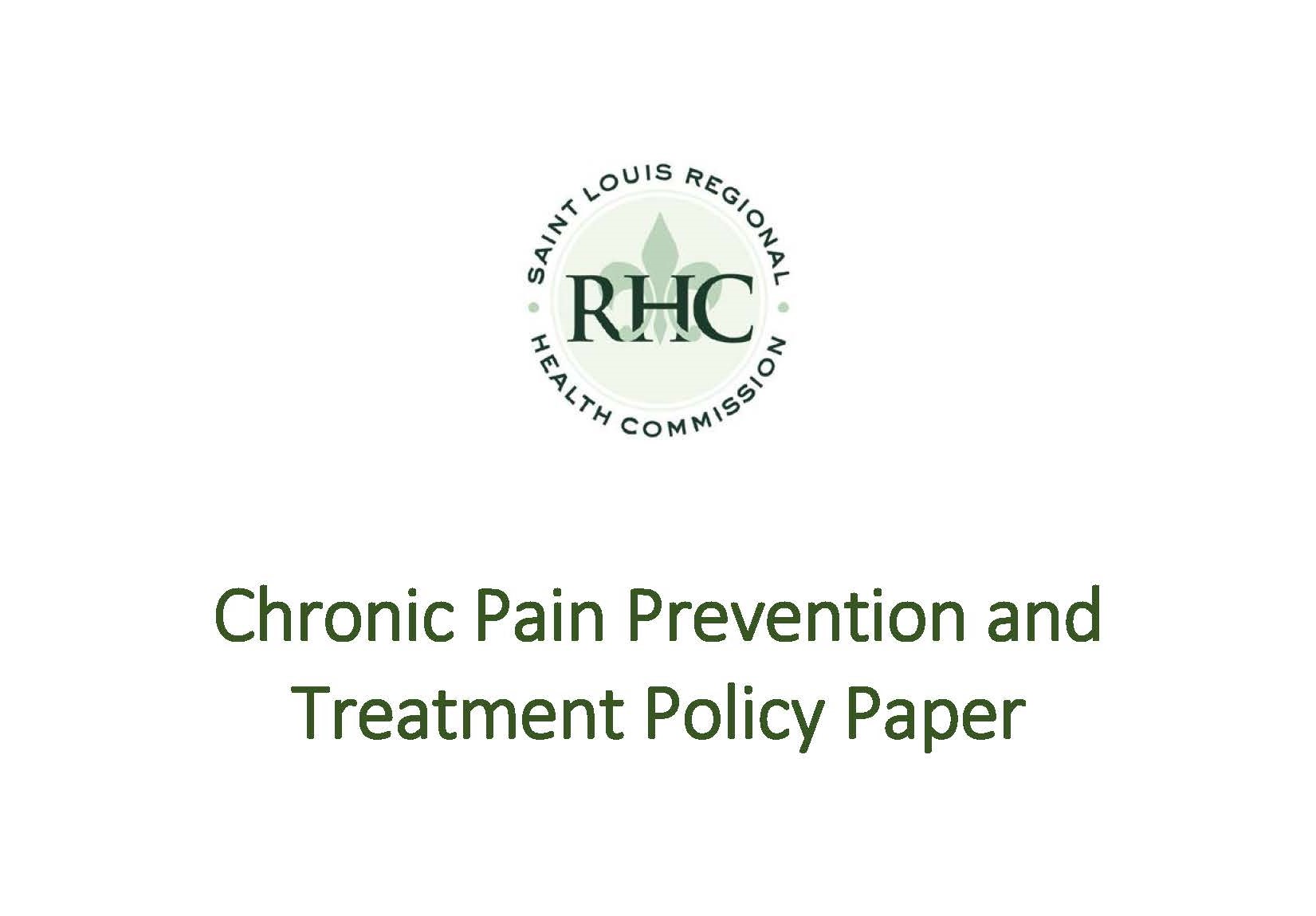ST. LOUIS, February 2, 2019 – The St. Louis Regional Health Commission (RHC) released the Chronic Pain Prevention and Treatment Policy Paper for regional stakeholders as part of its Chronic Pain Initiative, a regional effort to prevent and reduce the impact of chronic pain.
The RHC’s policy paper, synthesizing national and local expertise, details four major policy recommendations:
- Recognize chronic pain as a public health problem
- Educate patients and providers about chronic pain
- Treat chronic pain as a chronic disease, using a holistic, collaborative, and cost-effective approach
- Individualize treatment plans in a patient-centered and trauma-informed manner
These recommendations aim to improve the management of chronic pain via a collaborative patient-centered approach, particularly for the St. Louis safety net population. Although sudden acute physical pain can be a life-saving alert, “chronic pain” is defined as maladaptive prolonged pain exceeding three months. The chronic pain crisis is nationally recognized and locally magnified. According to a recent study by the Centers for Disease Control and Prevention (CDC), approximately one in five U.S. adults suffer from chronic pain, but certain groups suffer at disproportionately high rates, including but not limited to African Americans and low-income individuals. Members of Gateway to Better Health (GBH), RHC’s coverage model that provides access for 24,000 adults annually to health care services, have rates of chronic pain greater than twice the national average.
“When we discovered that so many patients have been burdened with chronic pain, we understood that their suffering and functional loss couldn’t be reversed without policy changes that directly empower patients and equip providers with the right tools,” said Heidi B. Miller, MD, Medical Director for GBH and the project lead for RHC’s Chronic Pain Initiative.
While chronic pain is its own national epidemic, the nation’s opioid crisis is interrelated. As the CDC has reported, opioids continue to be prescribed for chronic pain despite posing great risks and lacking evidence around effectiveness for chronic pain treatment. Lower-risk, evidence-based treatments exist but are often inaccessible to patients due to cost and other barriers. A St. Louis physician remarked, due to lack of coverage of evidence-based non-pharmacological treatments, “The only thing left in our utility belt is the pill.”
The evidence is clear: non-pharmacologic, multidisciplinary treatments can help patients with chronic pain with significantly less risk than opioids. Yet, the mismatch persists between science and policy. The Chronic Pain Prevention and Treatment Policy Paper aims to ameliorate this mismatch by offering specific recommendations to improve chronic pain management in the St. Louis region and State of Missouri.
“We hope this report will elevate the issue among stakeholders as they come together to improve the treatment of chronic pain in our region,” said Angela Brown, Chief Executive Officer for the RHC.
For more information about the Chronic Pain Prevention and Treatment Policy Paper or the Chronic Pain Initiative please contact Angela Brown at abrown@stlrhc.org.

